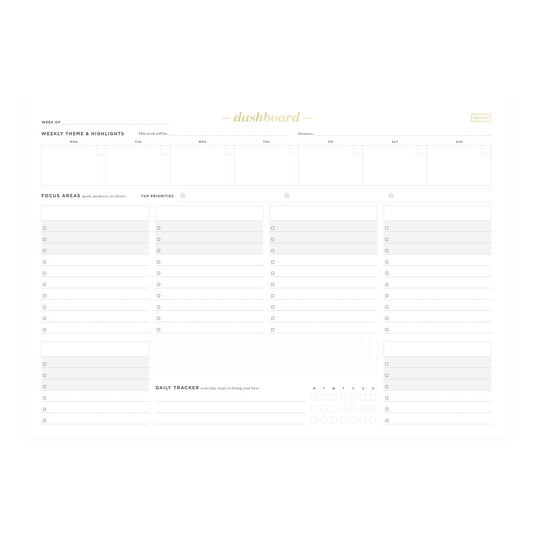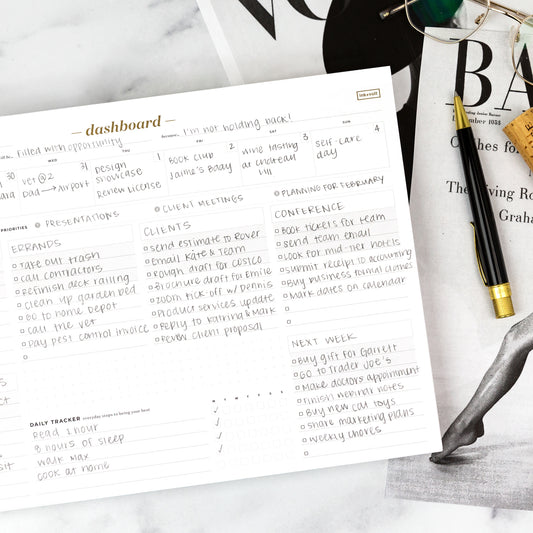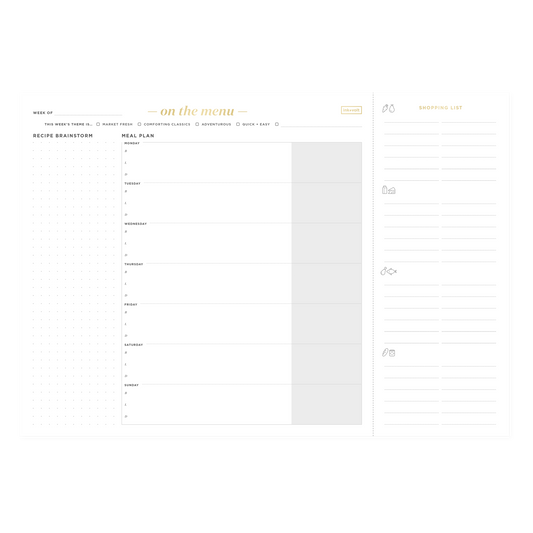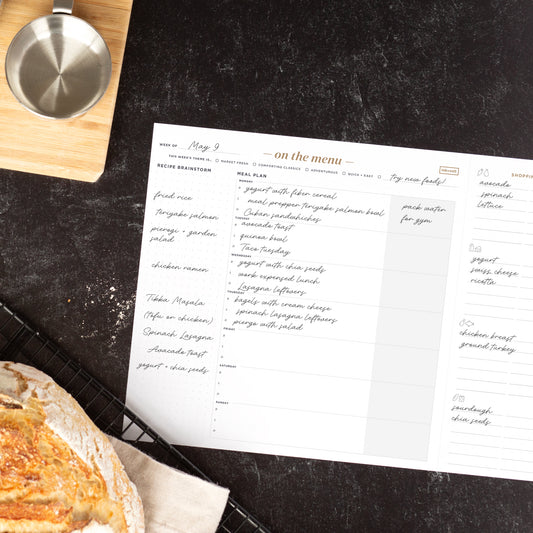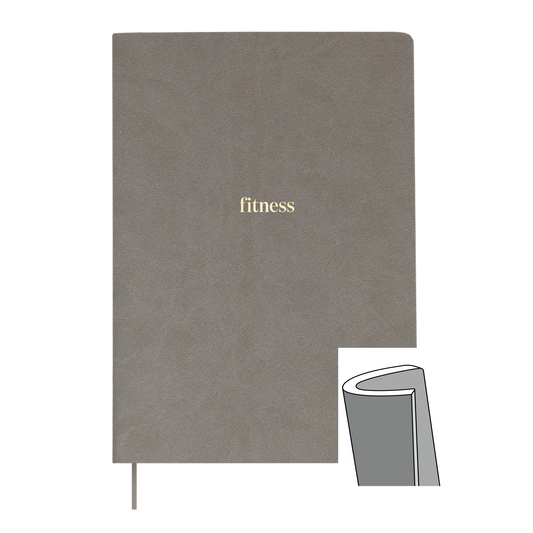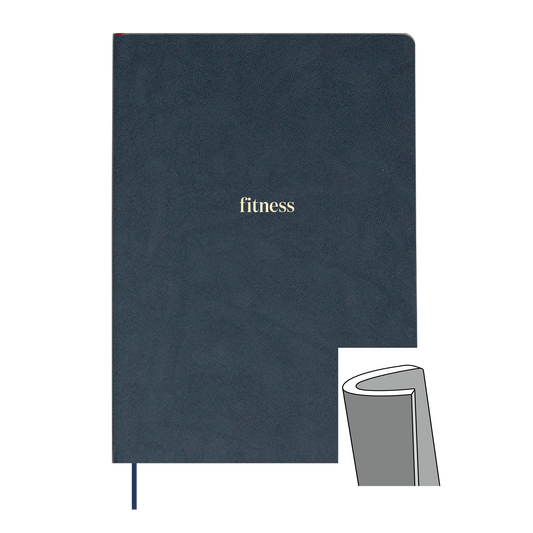“The best way to capture moments is to pay attention. This is how we cultivate mindfulness.” — Jon Kabat-Zinn
Kabat-Zin, who founded the Center for Mindfulness at the University of Massachusetts Medical School, has helped bring “mindfulness” to the mainstream. Practices like meditation and journaling can have real impact, according to the researcher and others who have also dedicated their careers to healing the mind.
Most of them have found that among the easiest and most impactful forms of self care is journaling. Taking a few moments each day to let your mind wander while jotting your feelings down on a page is one of the best things you can do to keep your stress levels low and your mood positive.
For that reason alone, journaling can be a positive ritual, but the impacts aren’t just all on mental health. Some studies have even suggested that journaling helps wounds heal faster, improves sleep, and bolsters the immune system.
Journaling is a practice of mindfulness that can help you do so many things: calm down, find gratitude, or set goals. That said, it can also be a difficult practice to make a habit. But with a little guidance and a helpful journal, journaling can be easily implemented into any lifestyle, no matter how hectic.
Guided journals, complete with prompts, can be a good way to avoid the writer’s block brought on by the intimidation of a blank page. They give enough guidance to get you started but enough freedom to allow the practice to be helpful.
Each of these journals focus on some aspect of mindfulness that are valuable in slowing down, making big life plans and even healing from past traumas.
Free resources for gratitude and mindfulness
In the following sections, we’ll be sharing some of the best journals you can buy to enhance mindfulness and wellbeing in your everyday life. But we also wanted to share some free resources so that anyone can make these practices a part of their lives, without investing any money in a product.
The Gratitude Stroll Worksheet is a free downloadable PDF designed to help you take a walk that can shift your mindset and change your day. This exercise is designed to help you bring mindfulness to a walk outside, and then journal your feelings and observations through a set of brief prompts.
The Giving Worksheet is another free downloadable PDF that helps you create a plan for giving -- whether it be time, money, expertise, or support -- to those around you in order to create a cycle of gratitude and positivity around you. Studies have shown that people who give to others actually feel better themselves. But knowing where and how to give can sometimes feel overwhelming. Get your thoughts and plans in order so that you can give in a way that will help the world around you, and make you feel like you’re making a positive impact.
Best journals for daily reflection and growth
Inspired by her experience working with an executive coach, Ink+Volt founder Kate Matsudaira designed the Ink+Volt Daily Reflection Journal to incorporate the lessons she learned from her coach into a streamlined journal anyone could use to reflect on and improve their performance at work.
On each page, users record what went well each day, as well as their plans for the following day. In addition, there is a spot for a "daily inspiration"; this can be a word, phrase, or quote to motivate you throughout the day, or it can be something you saw or heard that inspired you that you want to record.
By being intentional about self-reflection every day, you become able to track your incremental progress over time, see what is really working for you, and create an intelligent plan for tomorrow. It's like having a professional coach that lives on your desk, inspiring you to be your best self every day.
Best journals for gratitude
Implementing a gratitude practice into your daily routine can have a bevy of benefits. While it obviously improves general mental health, some researchers have found it can improve physical health, foster healthy relationships, and increase self-esteem as well. It’s also easy to do, because all it takes is simple observation and thinking about the things around you that you appreciate.
That’s why gratitude is always a good place to start with journaling for mindfulness, and the Ink+Volt Gratitude Journal makes it really simple.
With simple prompts like “When do you feel complete?” and “What inspires you today?”, the journal gives you the flexibility to just answer the questions or to really dig deep into a topic on your mind that day. There are 60 blank daily entries, each of which can be completed in a matter of seconds or minutes depending on how much time you have, plus 10 weekly challenges designed to help you really explore what you are grateful for.
Best journals for intentional living
There is a difference between setting a goal and setting an intention. Setting goals allows you to plan for the future, while setting intentions applies ambitions to the now. Who do you want to be someday, versus who do you want to be right now. Both are good, but if you’re focusing on mindfulness, then setting an intention can be an important daily or weekly ritual that brings you into the here and now -- rather than focusing on a future you can’t control.
The Set Your Intention Journal aims to strike a balance between setting goals and intentions, so that you get the most of your ambitions. This journal helps you track your long-term goal while also helping you to make little changes along the way.
Start by simply visualizing the accomplishment you have in mind -- the journal will guide you the rest of the way.
Best journals for progress
We’re all a work in progress, right? That’s the premise behind the Ban.do Wellness Workbook, which focuses on all things we could be better at, like goal-planning, relaxing, and exploring. The workbook features more than 100 pages dedicated to progress, whatever that looks like to you. Plus, there are weekly check-ins to make sure you’re not just going through the motions.
If your goal is to generally just be, feel, and do better, this is your journal. Being more mindful is an act of repetition. That’s what makes journaling such a great tool in that journey of growth.
Best journals for empowerment
Life can be so chaotic, which is why journaling is so beneficial. The act of sitting down and accessing your emotions, stress levels, and how you’re handling it all forces you to take inventory and also configure the best way to move forward. Even if you’re experiencing the good kind of stress (those projects that we love but are just overwhelming), you can still benefit from a journal, like the Calm the Chaos Journal, that helps cut through the stress and make a plan.
This journal is kind of like a journal/planner hybrid. While there is a big focus on assessing emotions, the Calm the Chaos journal lives up to its name by also helping you create a plan to tackle a goal -- all while quieting the chaos around you.
Best journals for positivity
There is power in positive thinking. Yes, it can turn your day around, but it can also have serious health effects. Researchers at John Hopkins found that people with a family history of heart disease that also had a positive outlook on life were less likely to have a heart attack than those who didn’t have a positive outlook.
Luckily, being positive is a choice -- and it is something you can get better at doing if it doesn’t come naturally. With The Positive Journal it only takes about five minutes each day, and can help you develop a positive outlook through repetition. The author of the journal, Nancy F. Clark, used science and psychology to develop the journal, which promises to “guide you to long-term happiness and a fulfilling life.”
Using journaling for healing
Journaling can be a highly therapeutic practice. In the 1970s, University of Texas professor James Pennebaker embarked on a series of experiments that ultimately found that people who had experienced family trauma reported improvements in their mental and physical health after writing.
Of course, journaling isn’t always a replacement for professional therapy, but it can be helpful in healing from stressful or traumatic events.
With a little guidance from a professional, journaling can be very helpful.
Jacqueline Kademian, a Licensed Marriage & Family Therapist, developed the Soul Therapy journal specifically for this reason. Soul Therapy is meant to “aid you in self exploration, healing, and reflection.” This journal will last you at least a year with 365 prompts and questions that guide your journal entries.

